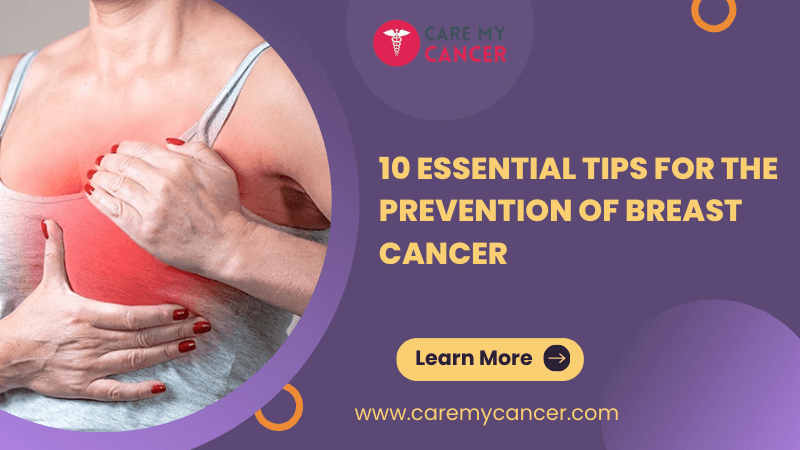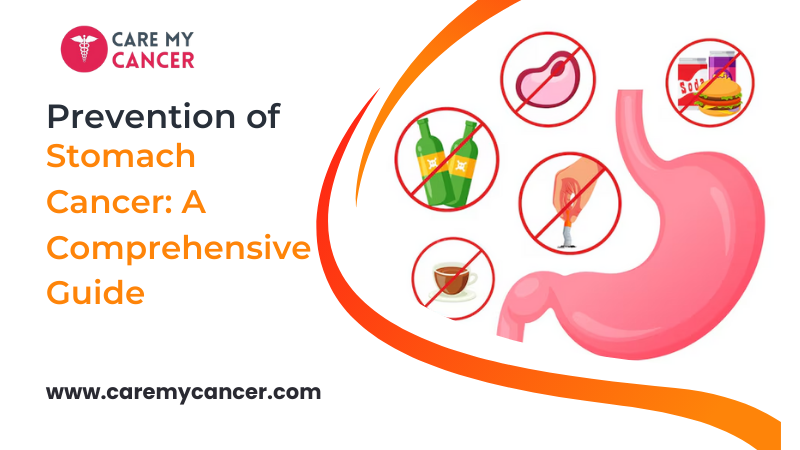
Dr Kamlesh Verma - The Best Cancer Specialist in Lucknow
- +91 99304 62874
- info@caremycancer.com
- Call Time: 9:30 A.M. to 7:30 P.M.
Breast cancer is a malignant tumor that develops in the cells of the breast tissue. It can occur in both men and women, but it is more common in women. The causes of breast cancer are not fully understood, but some risk factors have been identified. Breast cancer treatment options vary depending on the stage and characteristics of the tumor, and may include surgery, radiation therapy, chemotherapy, hormone therapy, targeted therapy, or a combination of these approaches.
Some of the known risk factors for breast cancer include:
Age: The risk of developing breast cancer increases as a person gets older, with most cases occurring in women over the age of 50.
Gender: Breast cancer is more common in women than in men.
Family History: Having a first-degree relative (mother, sister, or daughter) who has had breast cancer increases a person’s risk of developing the disease.
Personal history: A person who has had breast cancer in one breast is at increased risk of developing cancer in the other breast or a different part of the same breast.
Genetic Mutations: Inherited changes in certain genes, such as BRCA1 and BRCA2, can increase a person’s risk of developing breast cancer.
Reproductive History: Women who started menstruating at an early age or who have a late menopause are at increased risk. Women who have never been pregnant or who had their first child after age 30 are also at higher risk.
Hormone Therapy: Long-term use of hormone replacement therapy (HRT) or oral contraceptives may increase a person’s risk of developing breast cancer.
Lifestyle Factors: Poor diet, lack of physical activity, and alcohol consumption have also been linked to an increased risk of breast cancer.
Risk factors for breast cancer include:
Gender: Women are at higher risk of developing breast cancer than men.
Age: The risk of developing breast cancer increases with age.
Family history: Women with a family history of breast cancer are at higher risk of developing the disease.
Personal history: Women who have had breast cancer in one breast are at higher risk of developing it in the other breast.
Hormonal factors: Women who started menstruating at an early age or went through menopause later than usual are at higher risk of developing breast cancer.
Exposure to radiation: Women who have been exposed to radiation, particularly during childhood or adolescence, are at higher risk of developing breast cancer.
Symptoms of breast cancer may include:
A lump or thickening in the breast or armpit
Changes in breast size or shape
Changes in the skin of the breast, such as dimpling or puckering
Nipple discharge or inversion
Redness or scaling of the nipple or breast skin
Prevention of breast cancer includes:
Maintaining a healthy weight
Regular exercise
Reducing alcohol consumption
Avoiding smoking
Breastfeeding may also reduce the risk of breast cancer
It is important to visit a doctor if you notice any changes in your breast, such as a lump, thickening, or changes in the skin or nipple. Regular breast cancer screenings, such as mammograms, are recommended for women over 50. Women with a higher risk of breast cancer, such as those with a family history, may need to start screenings earlier. Explore comprehensive information on CareMyCancer to understand breast cancer causes, symptoms, diagnosis, treatment options, and gain expert insights for prevention and management. Stay informed about the latest advancements in breast cancer treatment and empower yourself towards a healthier future.
Care My Cancer is an initiative by Dr Kamlesh Verma who is Director Surgical Oncology at Max Healthcare and was formerly associated with the prestigious Tata Memorial Hospital Mumbai.
Who Are We
Services
Gallery
Success Story
Surgical Updates
Head & Neck Cancer
Breast Cancer
Lung Cancer
Stomach Cancer
Urological Cancer
Gynaecological Cancer
Colorectal Cancer


© 2023 Copyright Care My Cancer. Created by E-Marketters
This website uses cookies to provide you with the best browsing experience.